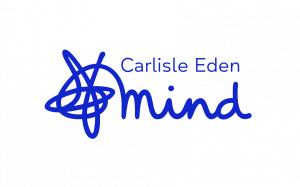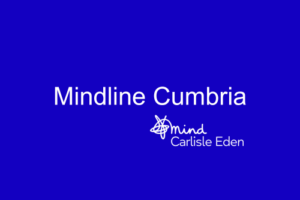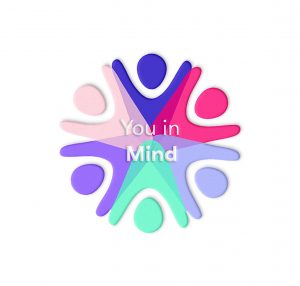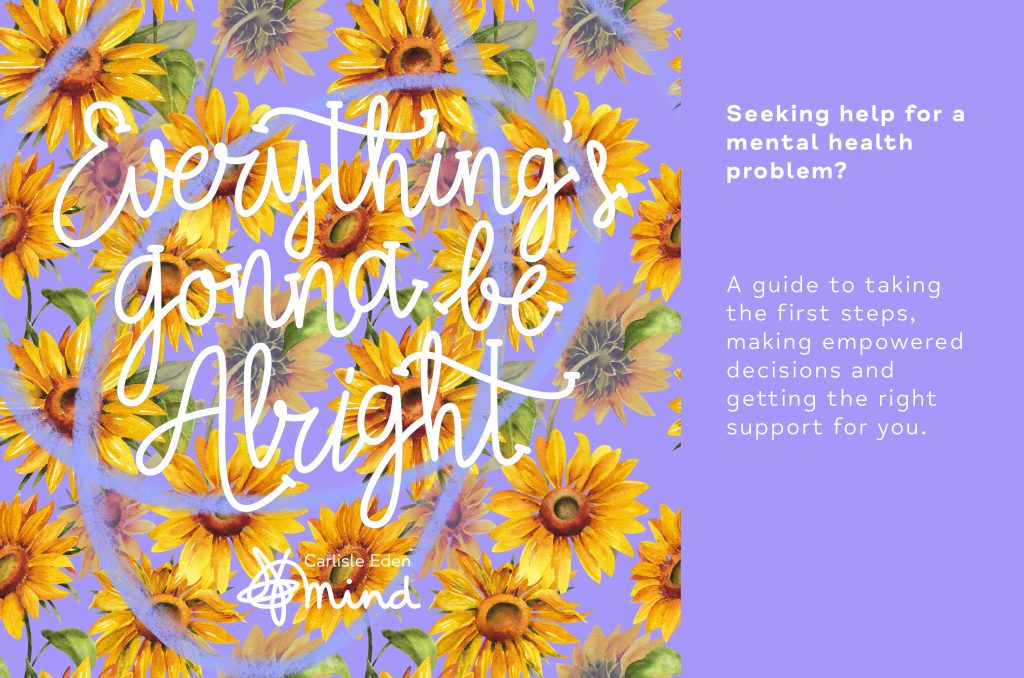
Seeking help is often the first step towards getting and staying well, but it can be hard to know how to start or who to turn to. It’s common to feel unsure, and to wonder whether you should try to handle things on your own. But it’s always ok to ask for help – even if you’re not sure you are experiencing a specific mental health problem.
If you would like to download this resource please click here.
You might want to seek help if you’re:
- Worrying more than usual
- Finding it hard to enjoy your life
- Struggling to get out of bed
- Having thoughts and feelings that are difficult to cope with, which have an impact on your day-to-day life
- Interested in finding out about more support.

Under 18? Resources for you on how to get help and support See young people’s resources
Who can I turn to?
There are lots of options for support out there, although you might find some are more suitable for you, or more easily available. There’s no wrong order to try things in – different things can work for different people. We have listed some options for you below.
MindLine Cumbria
MindLine Cumbria offers mental health information, guidance and support to those living in Cumbria. We can help you understand your situation better, explore your options or just be there to listen. It doesn’t matter who you are, how you feel, or what has happened. If you feel that things are getting to you, get in touch. Sometimes talking things through or hearing a supportive voice can give you the extra strength to find a way forward.
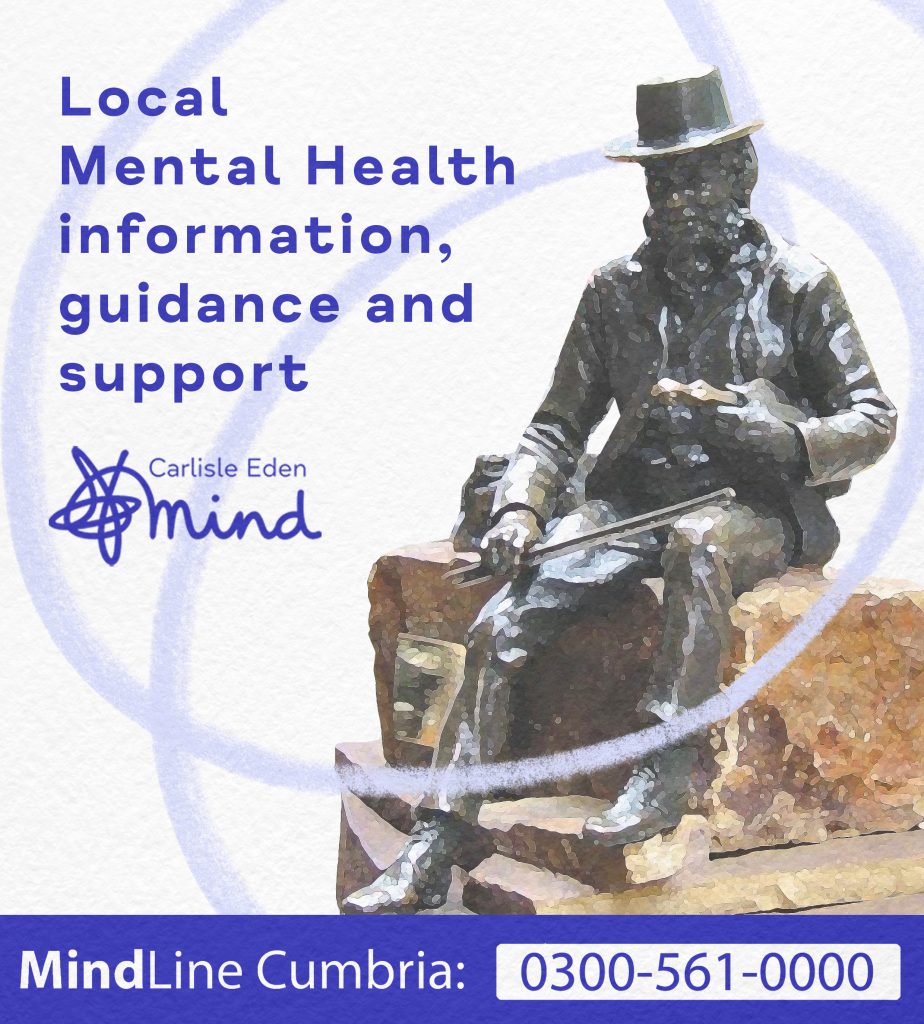
Call MindLine Cumbria on:
Text ‘Mind’ and your question to: 81066
Webchat: www.mindlinecumbria.org
Email: info@mindlinecumbria.org
You in Mind
You In Mind is a service for anyone who is concerned about their mental health and finds themselves in crisis.
We believe that anyone in crisis deserves to be treated fairly and with respect.
Every referred person will have a safe, calm environment to meet with a You In Mind support worker in one to one session/s.
We are here to listen and support you. We will not tell you what to do but we can offer options and a range of other support. You in Mind helps to provide a holistic service to people in order that they get their needs met and find strategies to better manage their mental health.
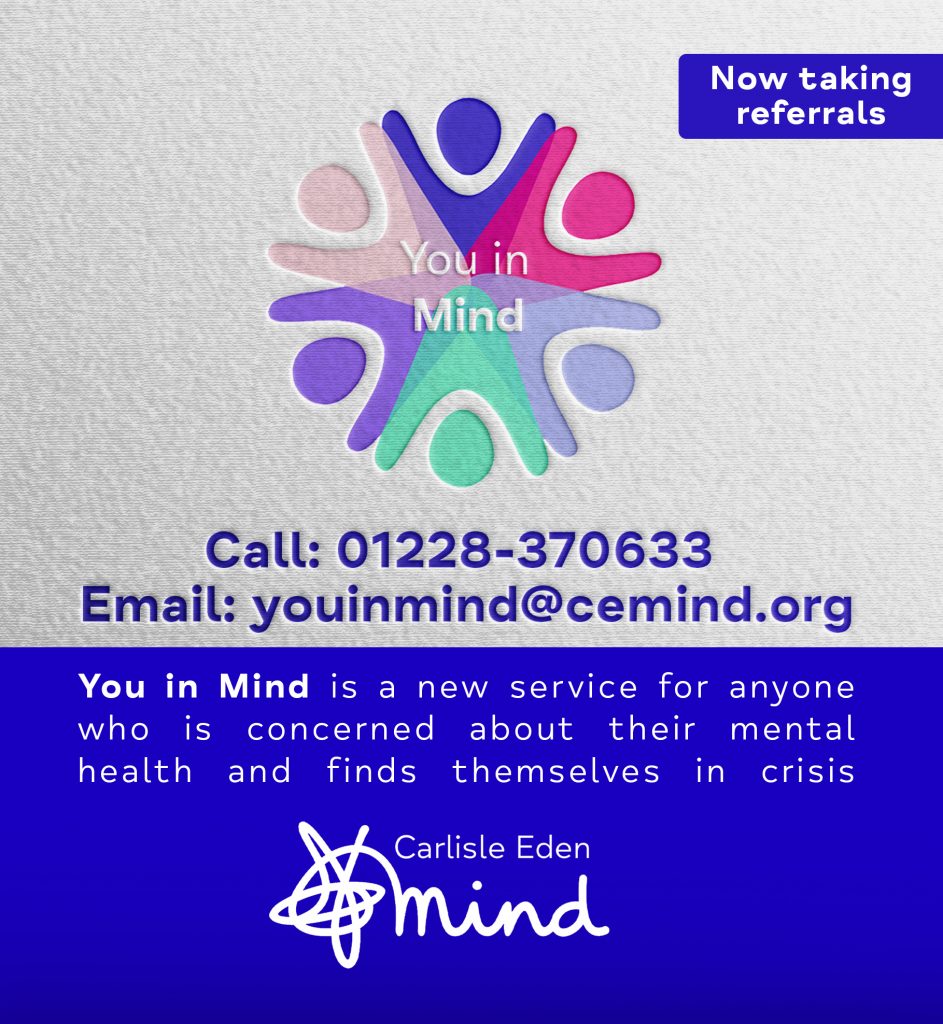
Are you concerned about your mental health?
Are you feeling like you are in crisis?
Call: 01228-370633
Email: youinmind@cemind.org
This support might include:
- Possible referral to a You in Mind Coach who will assist to break patterns of behaviour and help to reach goals.
- Allocation of a Peer Support Worker who will help with the journey to recovery.
- Signposting to other relevant agencies for additional support.
The Lighthouse, Evening Crisis Support
If you find yourself experiencing a mental health crisis in the evening, The Lighthouse Crisis Support is available for you every night of the year from 5pm-11pm. Including bank holidays.
We understand it can be hard to make that first call so we have 3 other points of contact available to make it more comfortable for you: Web-chat, Email and Text and Phone. Click on the image below for more information.

Your Doctor (GP)
For many of us, our local GP practice is the first place we go when we’re unwell (known as primary care). Your doctor is there to help you with your mental health as well as your physical health.
They could:
- Make a diagnosis
- Offer you support and treatments (such as talking therapies and medication)
- Refer you to a mental health specialist, such as a psychiatrist
- Recommend local support options.
GP appointments
After Covid-19, most GPs should now offer face-to-face appointments. If you prefer this to a telephone or online appointment, you can request this from your GP.
But many of us may still struggle to get a face-to-face appointment with our GP. Or we may worry about visiting the surgery in person while the pandemic is ongoing.
If you are struggling with this, the NHS has information on accessing NHS services online or over the phone, including GP appointments.
“The first time I went to my GP about my depression, I was completely terrified. I had suffered in silence for 6 months, and was so ashamed that I couldn’t ‘fix’ it myself.”
A trained therapist
Trained therapists and counsellors provide a range of different therapies through the NHS, for which your doctor could refer you (known as secondary care). In some cases you might be able to contact them directly.
To find out more see the national Mind’s page on finding a therapist.
Friends, family, carers and neighbours
Sometimes it can help to talk to someone you trust about how you are feeling. They could:
- Help you to find information
- Discuss your options with you
- Come with you to appointments
- Help out with everyday tasks
- Give encouragement and support.
To find out more see talking to friends and family.
Student services
Higher education institutions usually have a student wellbeing centre where enrolled students can go for support.
To find out more see the national Mind’s pages on student mental health.
Workplace support
Some workplaces offer free access to support services such as talking therapies. This is called an Employee Assistance Programme.
To find out more see our pages on workplace mental health.
What if I’m finding it difficult to seek help?
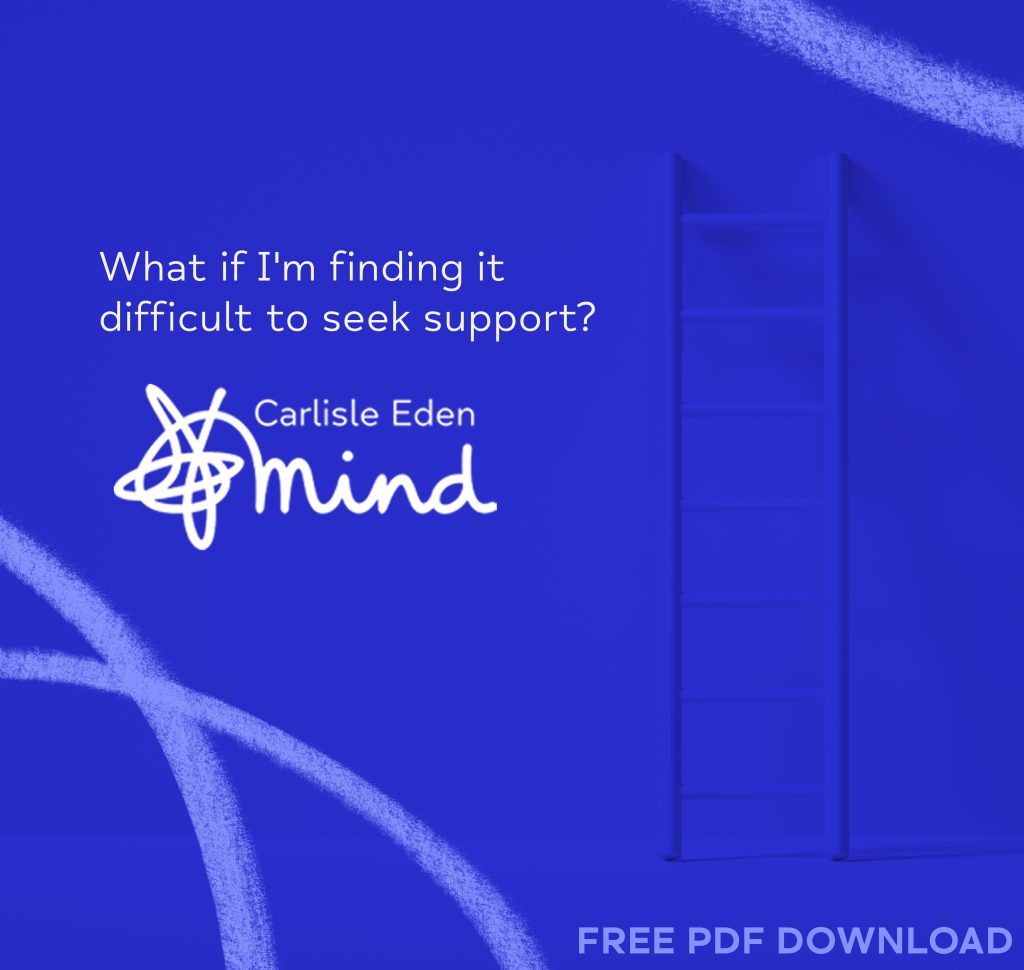
Download our post if you are finding it difficult to seek support:
Seeking support isn’t always easy, especially when you’re not feeling well. It can take time to reach out and you may not find it to be straightforward. Our PDF download is for anyone that may have difficulties or experience problems seeking the right support.

